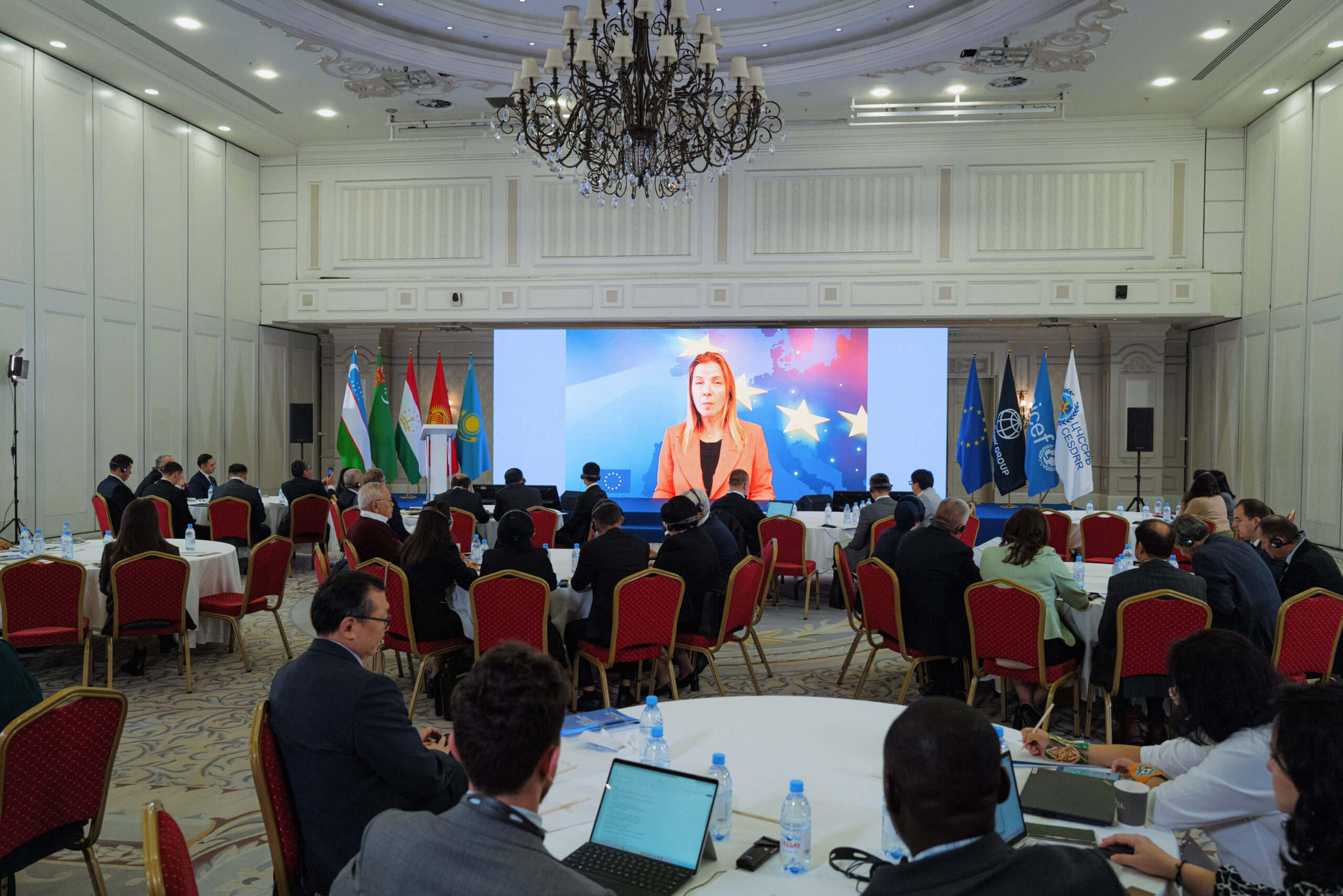Regional Forum Highlights Five Years of Progress in Disaster Preparedness & Social Protection in Central Asia

ASTANA – The Strengthening Financial Resilience and Accelerating Risk Reduction in Central Asia program (SFRARR) – funded by the European Union (EU) and implemented by the Global Facility for Disaster Reduction and Recovery (GFDRR) and the World Bank – hosted a final regional forum on Oct. 14-15 in Almaty. The event marked the conclusion of a five-year effort to enhance Central Asia’s resilience to climate change and natural hazards, highlighting the program’s achievements and impact across the region.

Almaty hosted the final regional forum within the framework of The Strengthening Financial Resilience and Accelerating Risk Reduction in Central Asia program (SFRARR) on Oct. 14-15. Photo credit: World Bank’s press service
According to the World Bank’s press service, beyond the implementing partners, the forum was organized together with UNICEF and with support from the Almaty-based Centre for Emergency Situations and Disaster Risk Reduction (CESDRR).
Central Asia is highly vulnerable to many natural hazards, including earthquakes, floods, landslides, droughts, and extreme weather events. Over the past 30 years, the region suffered from more than 150 significant disasters that impacted about 11 million people and caused over $4 billion in direct losses.
Since its launch in 2019, the SFRARR program aimed to scale-up social protection systems, improve financial resilience and risk-informed investment planning towards building disaster and climate resilience in Central Asia.
“A major outcome of the EU-funded SFRARR program has been the development of a regional database on natural hazards, along with detailed data on exposure and vulnerability. This information is critical for evidence-based disaster preparedness and planning, ensuring that communities are better equipped to respond to future risks,” said World Bank Operations Manager for Central Asia Indu John Abraham.
Activities have been carried-out in Kazakhstan, the Kyrgyz Republic, Tajikistan, Turkmenistan, and Uzbekistan supported by the establishment of the Regional Scientific and Technical Council for Emergency Situations, which resulted in better collaboration and knowledge exchange between the countries. The program developed the first regionally consistent multi-hazard disaster risk assessment for the Central Asia region with more than 70 datasets, which includes exposure and vulnerability information as well as data on earthquakes and floods.
“Europe and Central Asia are among the regions expected to bear the most acute effects of climate change. The EU will continue promoting regional cooperation, supporting climate change mitigation and adaptation, fostering sustainable growth, while advancing gender equality, human rights, as well as opportunities for youth and marginalized groups. The program exemplifies this collaborative effort. It can contribute to helping Central Asia to mitigate the challenges resulting from climate change,” said Ambassador of the European Union to Kazakhstan Aleška Simkić.
The high-level regional event brought together representatives of government agencies and ministries responsible for national disaster management, health, social protection, finance and insurance, as well as research institutions, academia, international organizations, and development partners with the aim to present the main achievements of the program and discuss ways to sustain and build on results, including through increased regional collaboration.
“The Centre for Emergency Situations and Disaster Risk Reduction is a regional platform that addresses the region’s pressing challenges jointly. By involving the center in the implementation of the program the World Bank supported the regional approach. Integration of efforts at the regional level will help optimize resources and make their use more targeted,” said Director of Center for Emergency Situations and Disaster Risk Reduction Serik Aubakirov.

